Argument Reconstruction: Analysis of Arguments on God's Existence
VerifiedAdded on 2022/12/30
|5
|991
|60
Homework Assignment
AI Summary
This assignment reconstructs and analyzes arguments concerning the existence of God, drawing upon philosophical texts and thinkers such as Descartes, Anselm, and others. The student explores the ontological argument, examining the logical structure and validity of arguments asserting God's existence based on the concept of a perfect being. The assignment delves into the reasoning presented by these philosophers, evaluating their claims about the relationship between understanding, existence, and the nature of God. The student addresses counterarguments and provides a comprehensive analysis of the arguments' strengths and weaknesses, concluding with a synthesis of the arguments' implications for the philosophy of religion and metaphysics.
1 out of 5
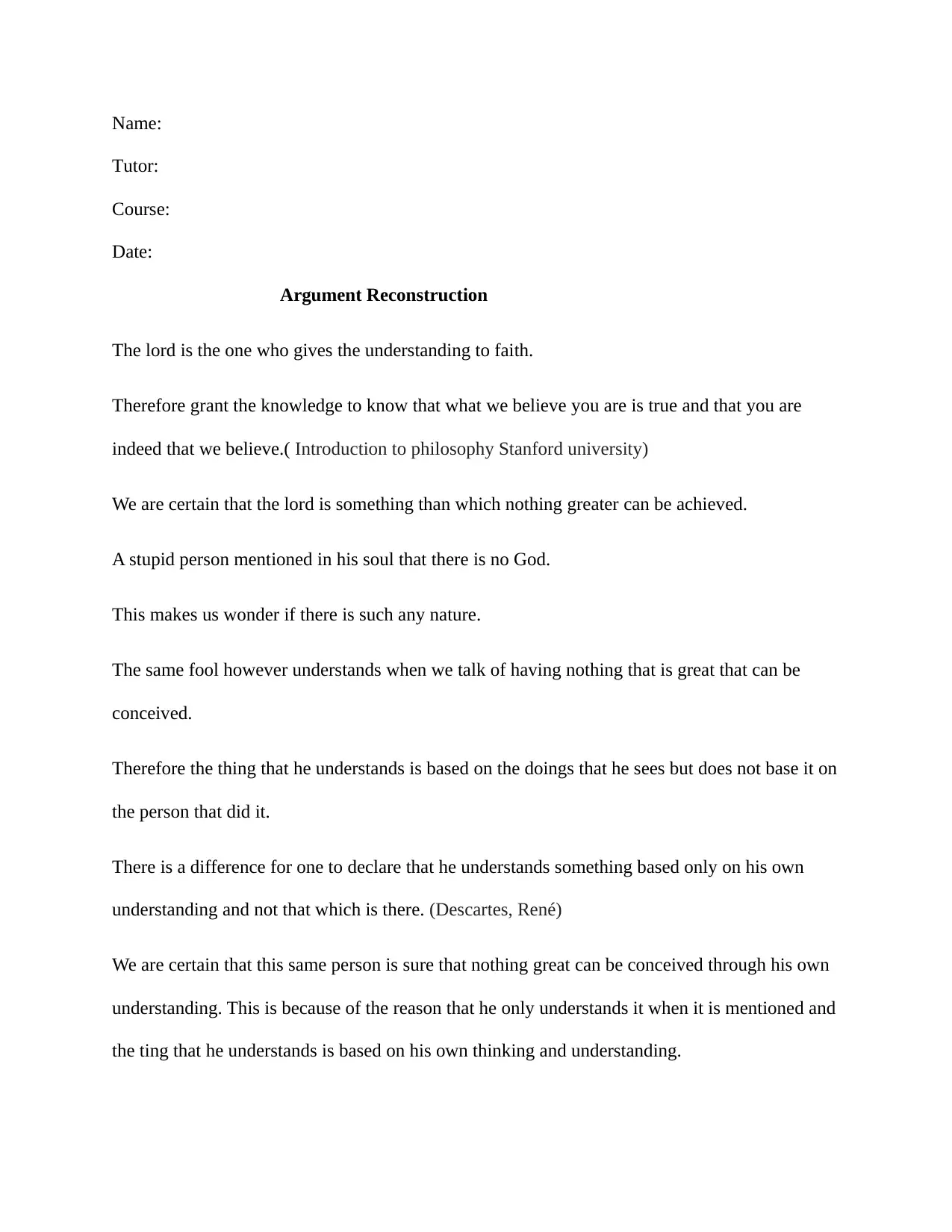
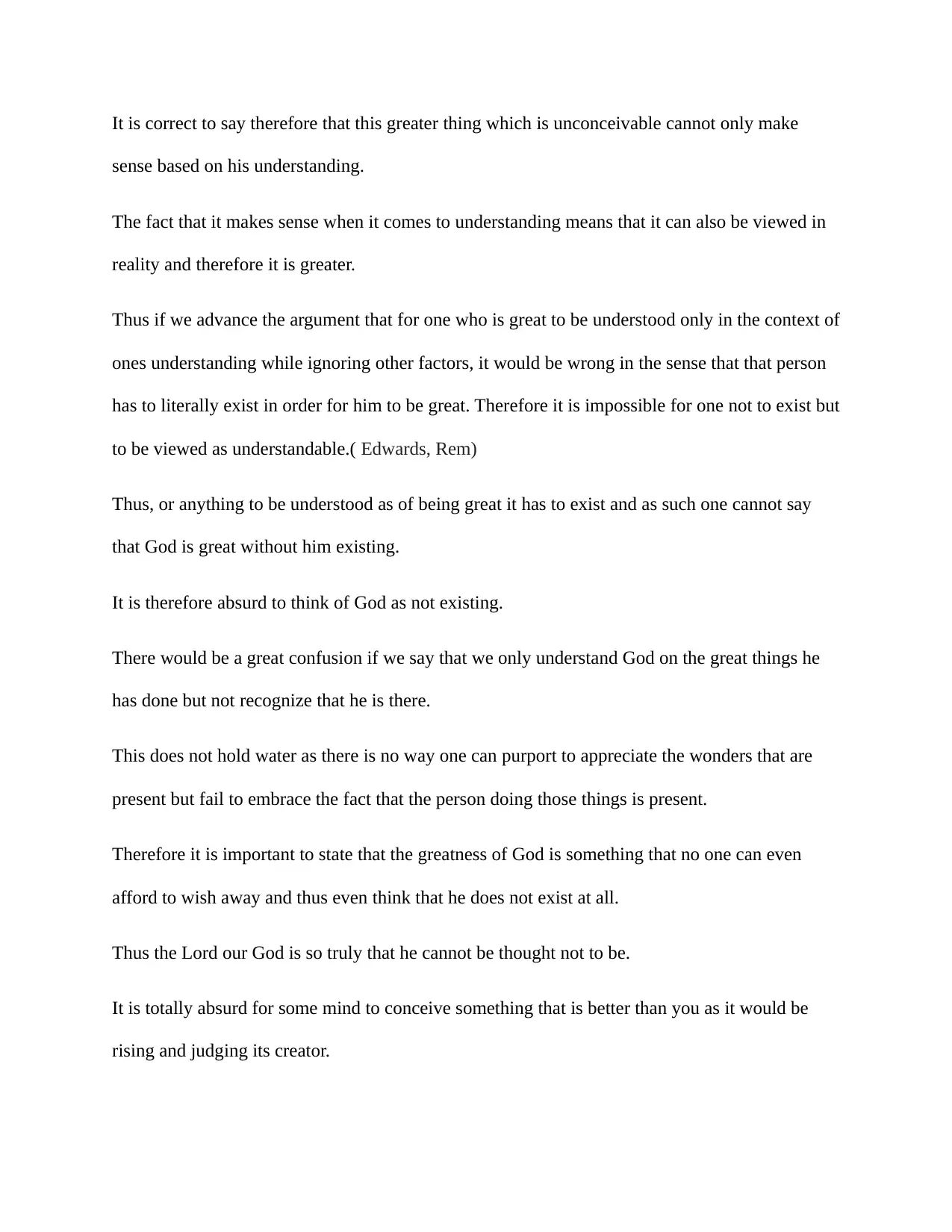
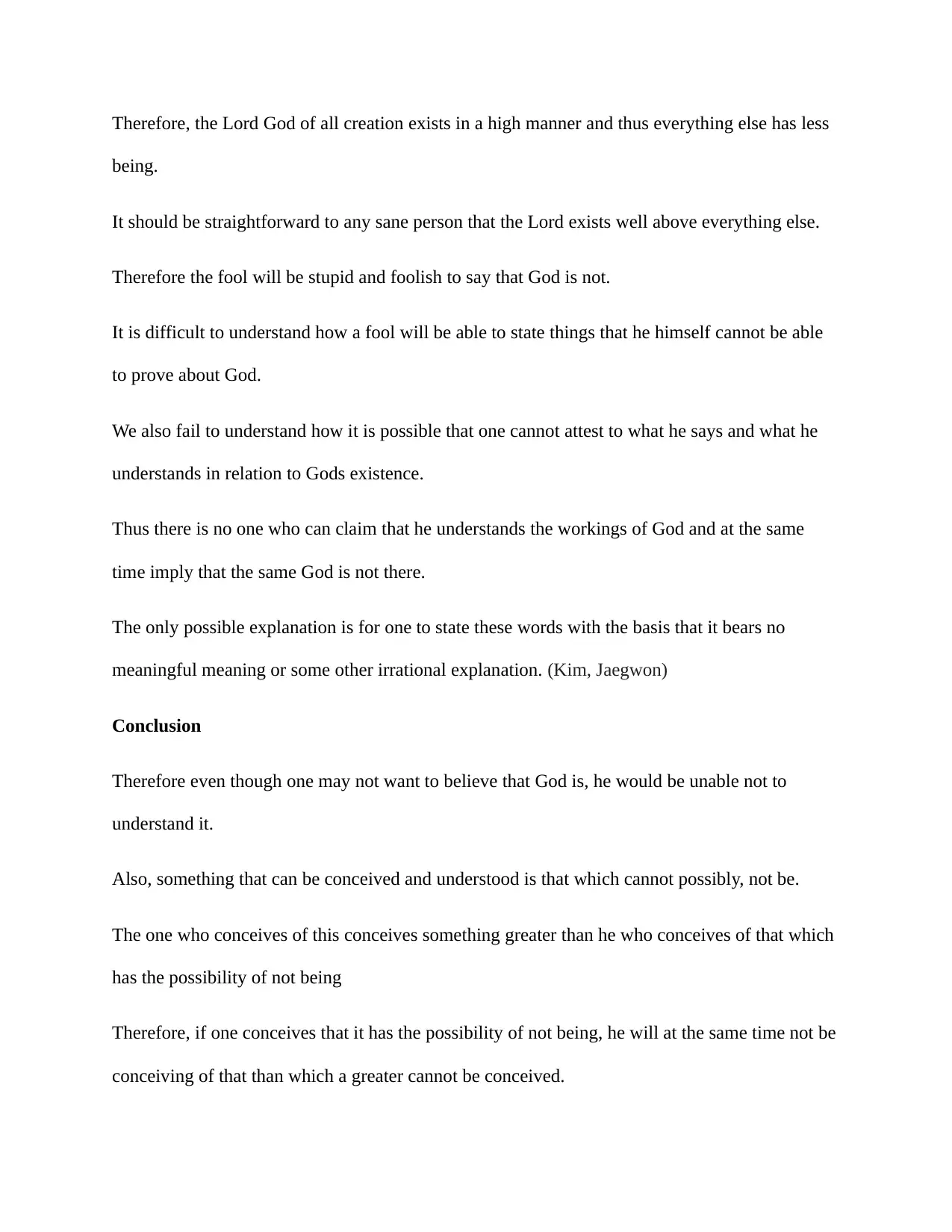
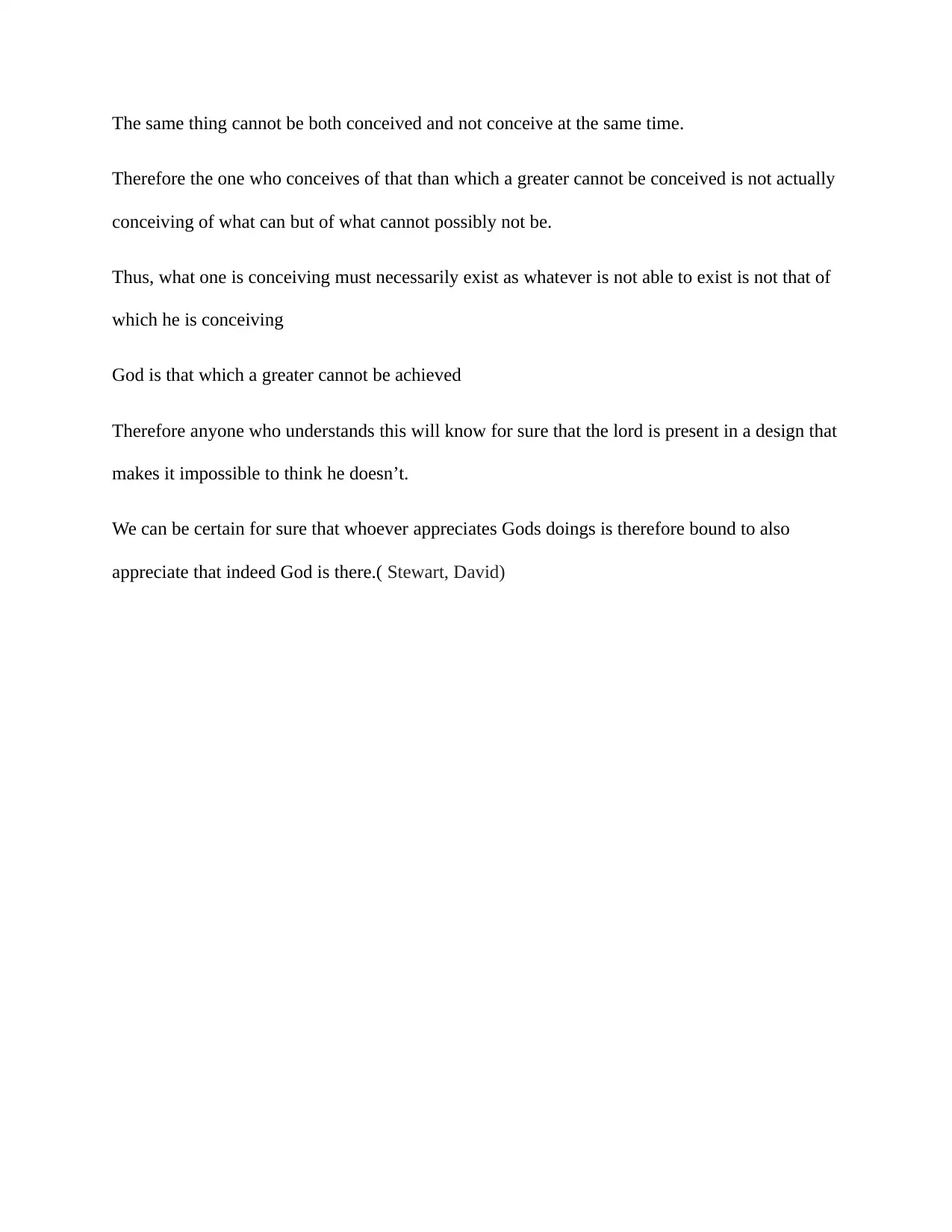
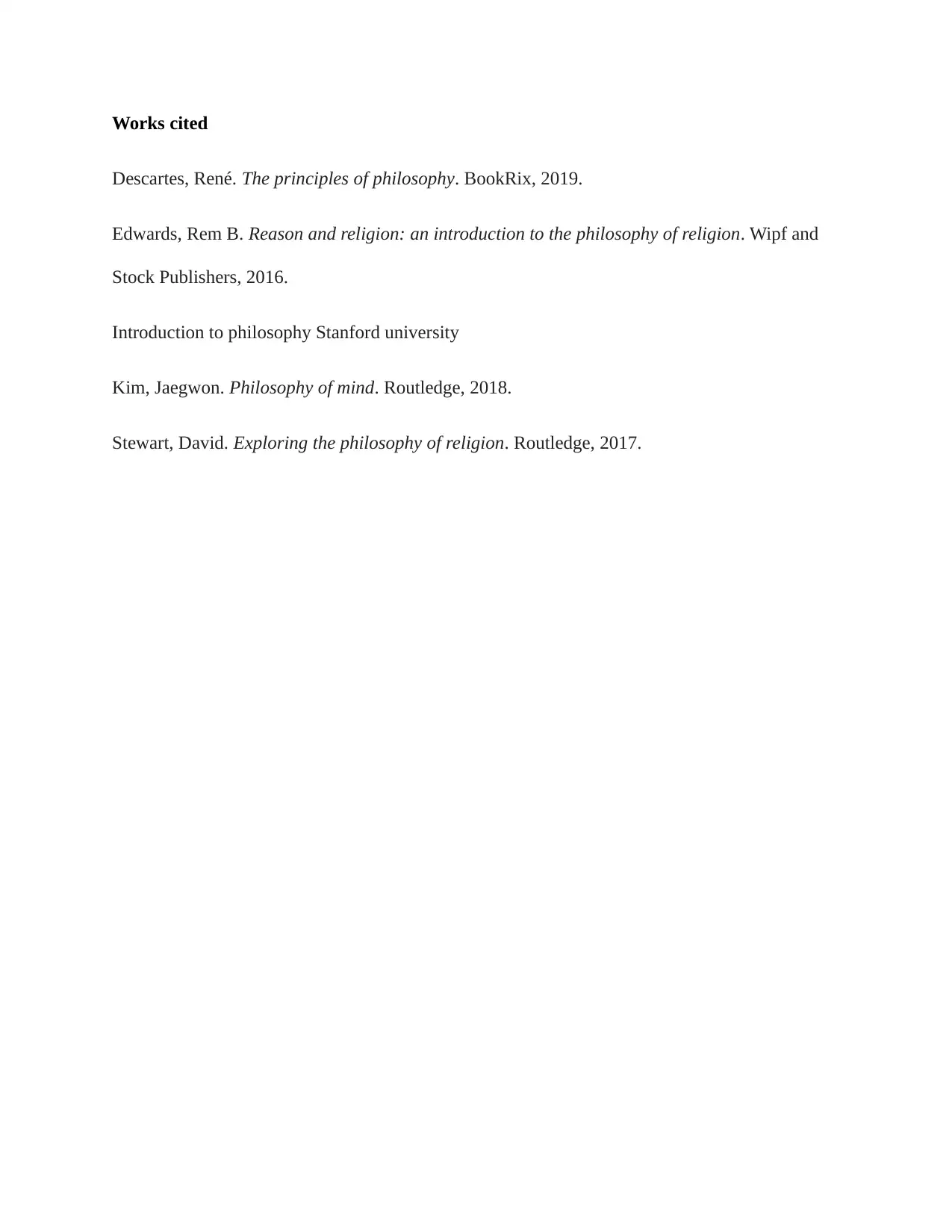






![[object Object]](/_next/static/media/star-bottom.7253800d.svg)